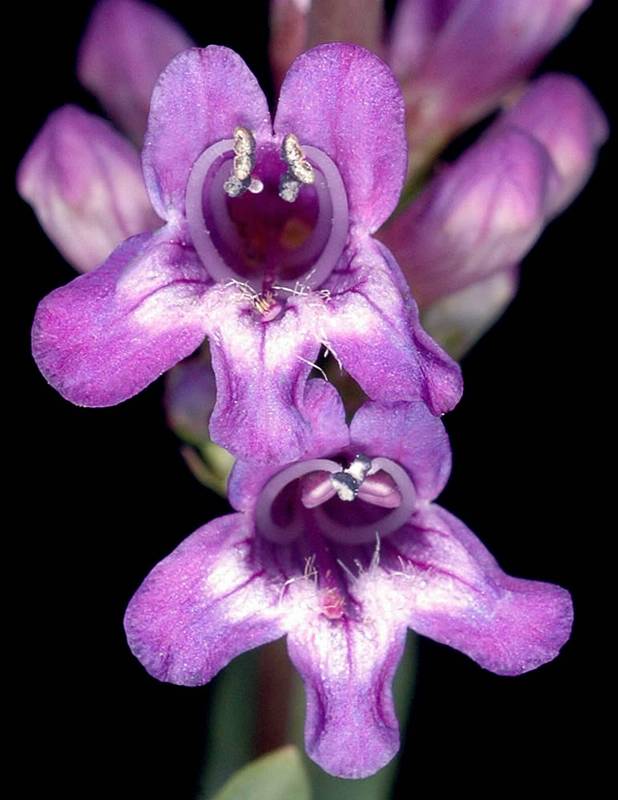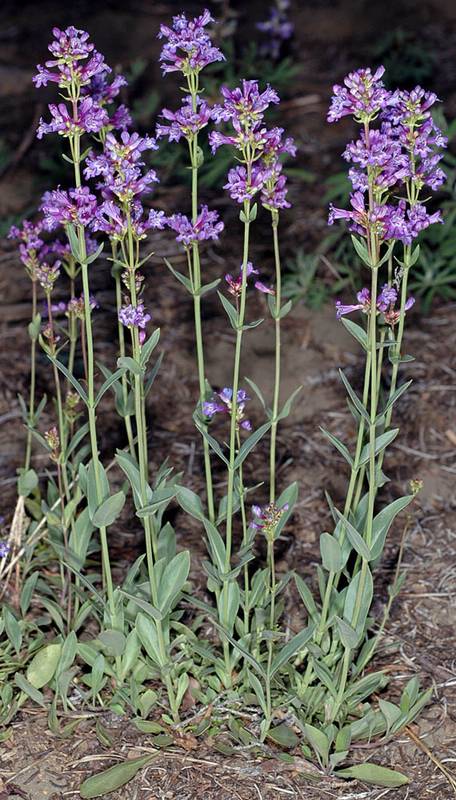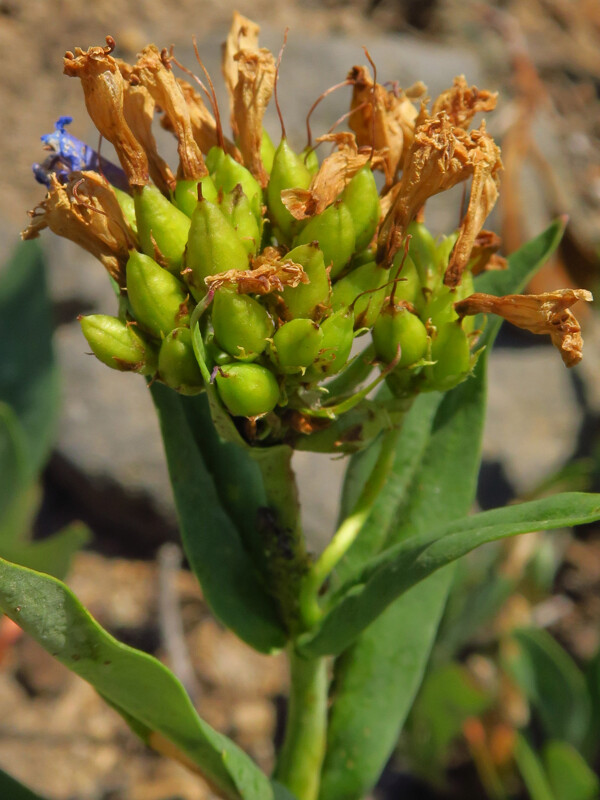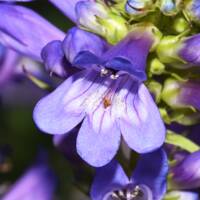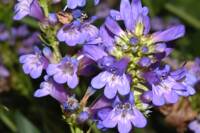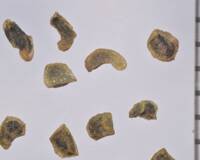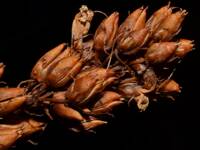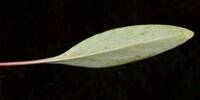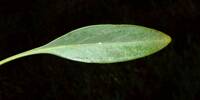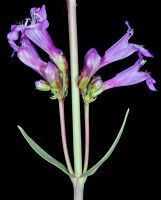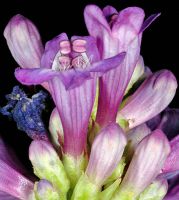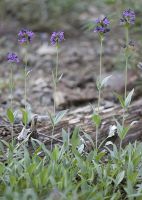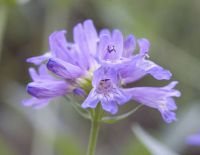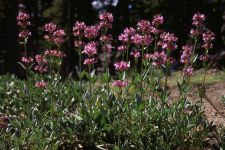Distribution: Occurring in the Cascades Range in Washington from Mt Adams south; Washington to central Oregon.
Habitat: Dry, sandy, open or sparsely wooded slopes at moderate elevations to subalpine meadows.
Flowers: June-September
Origin: Native
Growth Duration: Perennial
Conservation Status: Not of concern
Pollination: Bumblebees, bees, flies, wasps, hummingbirds
Tufted perennial from a woody rhizome, the slender stems 2-7 dm. tall, glabrous and glaucous throughout.
Leaves opposite, entire, the basal ones petiolate, oblanceolate, forming well-developed rosettes, up to 15 cm. long and 2 cm. wide; cauline leaves few, well-developed, sessile, not over 10 cm. long and 2 cm. wide.
Inflorescence of 1-several dense verticillasters, the flowers spreading at right angles to the stem; calyx 3.5-5 mm. long, the 5 segments broadly scarious-margined, abruptly contracted to a narrow, pointed tip; corolla blue-purple, 11-15 mm. long, bilabiate, the tube expanded, 3-5 mm. wide at the mouth; raised portion of the lower petal bearded; staminode usually bearded at the expanded tip; pollen sacs glabrous, ovate, 0.6-1.0 mm. long, not quite opening to the tip.
Capsule 5-6 mm. long
Publication: Proceedings of the Biological Society of Washington 41(45): 197-198. 1928.
PNW Herbaria: Specimen records of Penstemon euglaucus in the Consortium of Pacific Northwest Herbaria database
WA Flora Checklist: Penstemon euglaucus checklist entry
OregonFlora: Penstemon euglaucus information
E-Flora BC: Penstemon euglaucus atlas page
CalPhotos: Penstemon euglaucus photos

